Ditching the data: can you really train for a marathon goal without a watch?
Few serious runners head out the door without a GPS, but is it really necessary?
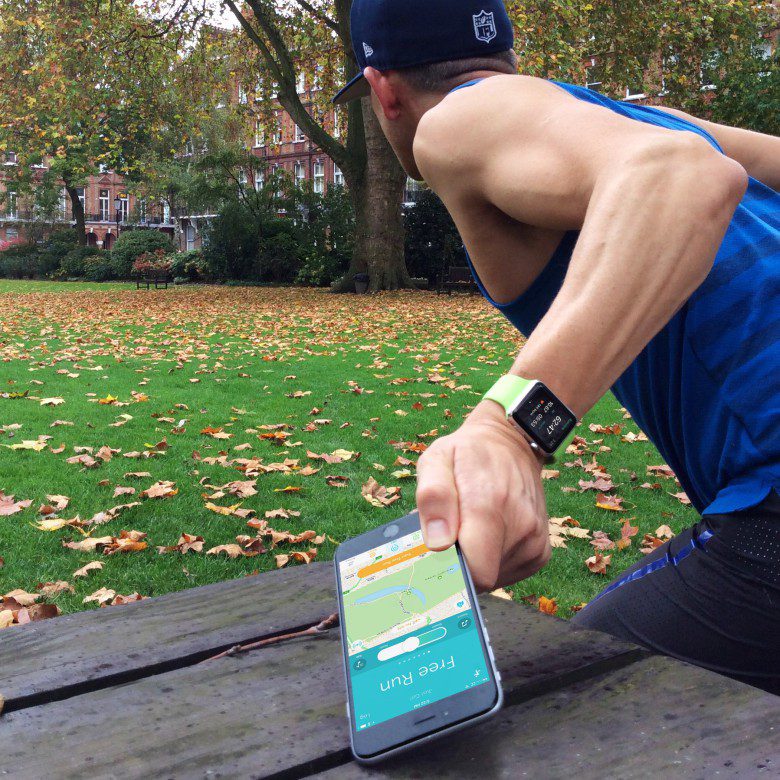
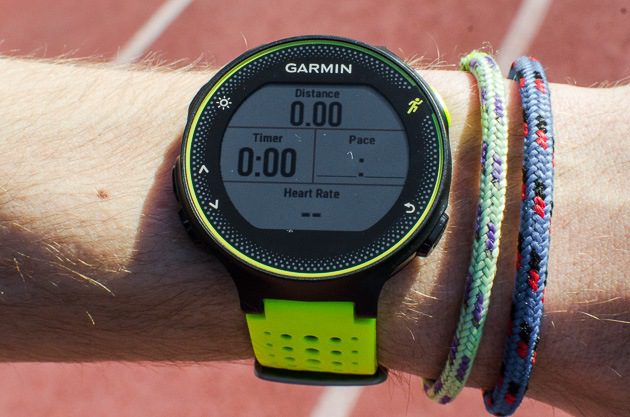 Hard to believe for most of us, but there are runners who never use technology. And who still get race results that they’re happy with. They track their workouts the old-fashioned way, using a map and a notebook (and maybe the kitchen clock) – not only when recovering from a long race or an injury, but all the time. And even in the marathon. So we wanted to know, is it really possible to train successfully without tech?
Hard to believe for most of us, but there are runners who never use technology. And who still get race results that they’re happy with. They track their workouts the old-fashioned way, using a map and a notebook (and maybe the kitchen clock) – not only when recovering from a long race or an injury, but all the time. And even in the marathon. So we wanted to know, is it really possible to train successfully without tech?
RELATED: Training tips: Ignore the GPS and run by feel
Some would say that throwing out the watch is going too far, but there are those who claim to train strictly by how their bodies feel at different levels of exertion. And that it’s possible to become well enough attuned to the feeling of running at different paces to actually rely on this throughout a training block.
Steve Jones is the Welsh runner who set a world record at the 1984 Chicago marathon and followed it up with a UK record of 2:07:13 the following year. As he told an astonished journalist in 2014, he never wore a watch.
“My training was based on effort,” reasoned Jones, “so why do I need to wear a watch in a race? ”
He has a point. (His UK record still stands.)
Not only is it possible to achieve results training without tech, but there are other benefits, namely simplicity, and the benefit of developing an intuitive sense of how hard you’re working. This, in turn, means it’s less likely you’ll overdo your training to the point of injury.

Simplicity was important to an even more famous example of someone who ran only to race, and who stacked up an incredible list of achievements without ever using a heart rate monitor or GPS: the late Ed Whitlock. Raised in England, Whitlock was still adding to his impressive list of age group records in the marathon five months before his death last year (from prostate cancer) at age 86. Yet he never timed his daily workouts.
Whitlock’s training famously consisted of three hours of slow jogging every day in the cemetery near his home in Milton, Ont. As he told Runner’s World magazine in 2010, his training involved “no physios, ice baths, massages, tempo runs, heart rate monitors… The more time you spend fiddlediddling with this and that, the less time there is to run…”
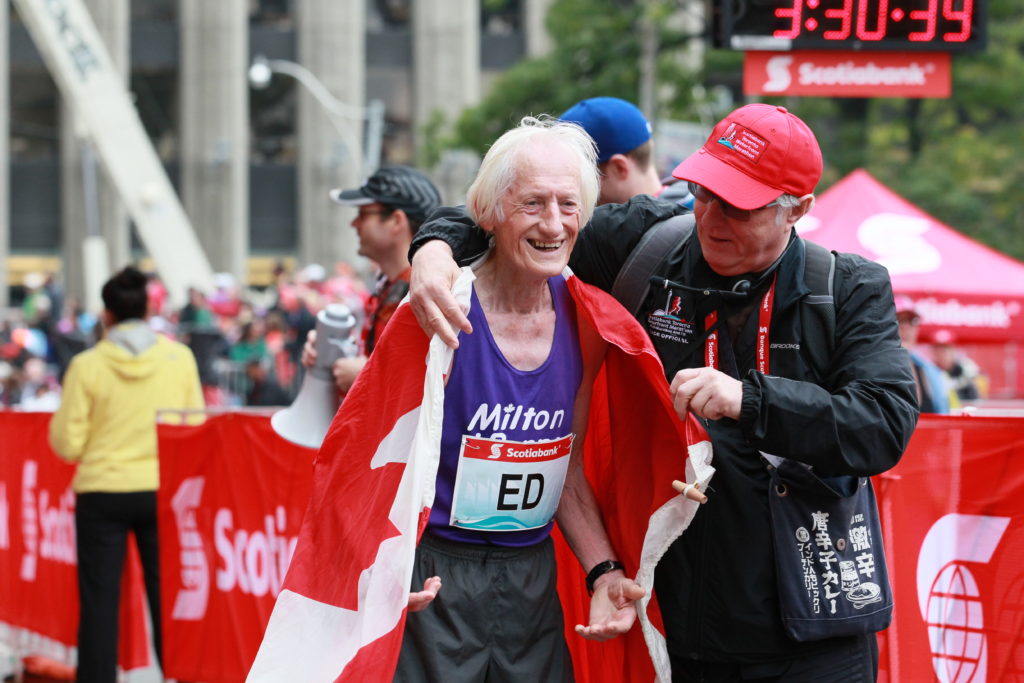
Whitlock held nearly 20 age-group records in various distances. In 2003 he broke the three-hour barrier in the marathon at age 73 with a 2:59:10 at the Scotiabank Toronto Waterfront Marathon, and the following year he bested his time by four and a half minutes. He is still the only person over 70 to have achieved a sub-3 marathon. His final record (set in his final race) was 3:56:38 for age 85+, at Scotiabank once again, in October 2016.
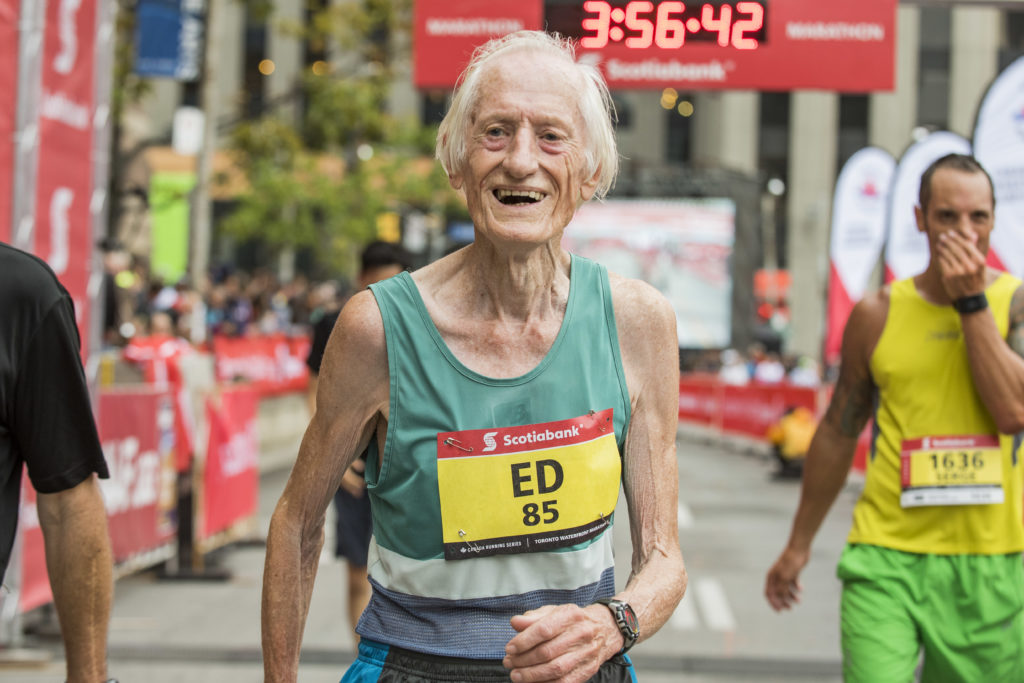
Jones and Whitlock are, obviously, exceptional athletes, but what about the modestly goal-oriented recreational runner?
We spoke to Allan Williams, a 53-year-old freelance writer in Toronto, who has set himself the goal of a personal best at the Chicago Marathon on October 7. Williams has never had a watch, and he’s on the fence about whether to start. “It’s not that I dislike technology,” he explains. “I’ve only resisted because I tend to obsess about things, and I could see myself wasting a lot of time analyzing information.”
Williams does use Gmap-pedometer to map out routes and keep track of mileage. And he appreciates the feedback he gets from his training partners when running intervals, for example. Williams hasn’t been goal-oriented until recently; he has always valued the friendships he’s made through running and the companionship that comes with logging miles together more than chasing faster finishing times. Spending a lot of time with more goal-obsessed runners, he began to realize that his 3:19 marathon PB (set five years ago, in his late 40s) might not be the best he was capable of. Hence, the new goal.
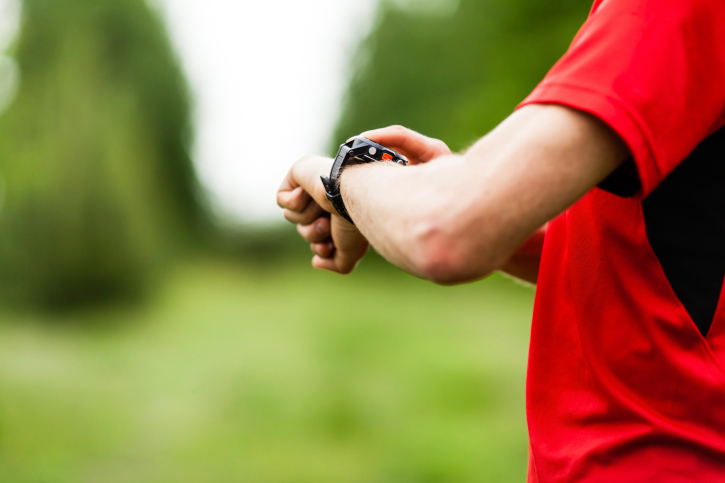
One thing is certain: it’s hard to go back once you adopt the available tech. Tracking your workouts is habit-forming. And there’s nothing wrong with enjoying the dopamine hits associated with clocking a faster-than-usual kilometre, any more than there’s anything wrong with enjoying the endorphin-induced high of a satisfying run. But if the simplicity of a bygone era appeals to you, it just might be worth experimenting.


